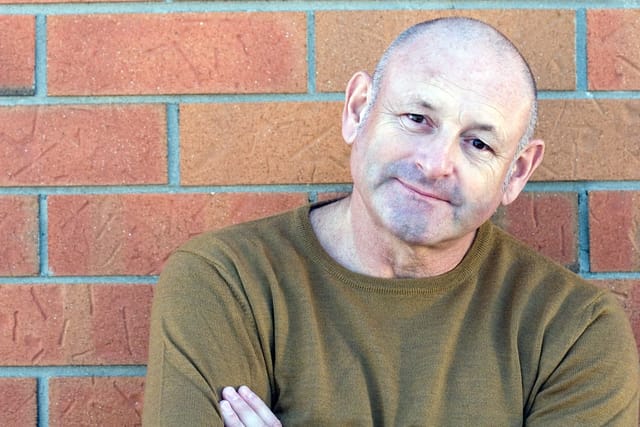The well-meaning phrase “forgive and forget” is often tossed around after someone hurts us. While the intention is good – promoting healing and moving on – this advice can actually be harmful. Forgiveness is a complex process, and true forgetting might not be necessary or even possible — here’s why.
1. It minimizes the pain you experienced.

Telling someone to “just forget” their experience invalidates their feelings. Betrayal, hurt, and trauma leave a mark, and pretending they didn’t happen disregards the very real emotional impact. Acknowledging your pain is essential before any kind of healing can even begin.
You may also like: These 16 Types of People Are Red Flags In Disguise
2. It puts pressure on you to move on prematurely.

Forgiveness is a journey, not a switch you can flip on demand, Mayo Clinic points out. Forcing the process can backfire, suppressing emotions instead of truly working through them. This can lead to resentment, emotional outbursts, or difficulty forming trusting relationships in the future. Healing takes time. Let yourself feel the anger, sadness, or disappointment without shame.
Don’t miss out – follow Bolde for exclusive content daily
3. It doesn’t require accountability from the wrongdoer.

“Forgive and forget” often implies sweeping the wrongdoing under the rug for the sake of peace. This removes the responsibility from the person who caused harm, preventing them from learning, growing, or making amends. Forgiveness doesn’t mean excusing the action or allowing the person back into your life without change on their part.
You may also like: 15 Things People Who Don’t Put Up With Anyone’s BS Have In Common
4. Truly forgetting is often impossible.

Especially with significant hurt or trauma, our brains are wired to remember negative experiences for our protection. Trying to erase these memories can be futile and frustrating. Instead of focusing on forgetting, aim for a lessening of the emotional charge associated with the memory over time.
Don’t miss out – follow Bolde for exclusive content daily
5. It can set you up for repeating the same cycle.

Forgiving without change on the other person’s part or establishing clear boundaries increases the risk of being hurt the same way again. “Forgiving and forgetting” can trap you in a toxic pattern. True forgiveness often involves setting boundaries to protect yourself and requiring changed behavior from the other person before trust can be rebuilt.
You may also like: 20 Ways A Narcissist Acts When They Can’t Control You
6. It confuses forgiveness with reconciliation.

Forgiveness is internal; it means releasing your own anger and resentment. Reconciliation is about repairing the relationship, and requires effort and trustworthiness from BOTH parties. You can forgive someone without ever reconnecting with them or placing your trust in them again.
Don’t miss out – follow Bolde for exclusive content daily
7. It implies quick fixes for complex emotions.

Healing, especially from deep wounds, is rarely linear, per Psychology Today. There might be good days, bad days, setbacks, and breakthroughs. “Forgive and forget” promotes a false idea that forgiveness is a simple checkbox to tick off. Allow yourself the space and time to process your emotions, even if it’s messy or takes longer than you expected.
You may also like: 30 Things Men Do When They’re Having A Midlife Crisis
8. It can rob you of justice.

Depending on the severity of the wrongdoing, “forgiving and forgetting” might mean giving up a sense of justice or rightful closure. This can be particularly harmful in cases of abuse or serious breaches of trust. Sometimes, holding someone accountable for their actions is an essential part of your own healing.
Don’t miss out – follow Bolde for exclusive content daily
9. It ignores the value of anger.

Anger is often considered a negative emotion to be quashed quickly. While uncontrolled anger is destructive, harnessed appropriately, it can be a powerful fuel for change. Anger at injustice can motivate you to protect yourself, stand up for what’s right, and prevent similar things from happening in the future.
You may also like: 15 Adult Traits of People Who Were Bullied As Kids
10. It neglects the importance of boundaries.

“Forgive and forget” often puts the focus solely on the internal work of the person wronged. However, healthy boundaries are crucial to prevent future hurt. You can forgive someone while simultaneously deciding to limit contact, not share vulnerable information, or refuse to accept certain behaviors.
Don’t miss out – follow Bolde for exclusive content daily
11. It can lead to self-blame.

If you struggle to instantly “forgive and forget,” you might internalize it as a personal failure or moral weakness. This self-blame can damage your self-esteem and create further emotional turmoil. Healing after a hurt takes time and effort. Be kind to yourself throughout the process and reject this false notion of needing to be instantly “over it.”
You may also like: People Who Lack Self-Awareness Frequently Say These 14 Things
12. It might not even be authentic.

Forcing forgiveness before you’re ready does a disservice to yourself and the other person. Faked forgiveness leads to suppressed resentment and hinders any potential for genuine healing in the long run. Allow yourself to work through your emotions honestly. True forgiveness can often blossom in its own time, but can’t be rushed.
Don’t miss out – follow Bolde for exclusive content daily
13. It can hinder growth and self-awareness.

Rushing to “forget” a painful experience robs you of the opportunity to learn from it. Reflecting on what happened, why it hurt you, and what you need in future relationships fosters growth and helps you avoid similar situations. Use these experiences, even the painful ones, as catalysts for self-understanding and setting healthy standards for your own well-being.
You may also like: People Who Rarely Exhibit Empathy Usually Have These 16 Traits
14. “Forgive and forget” often comes from a privileged perspective.

This advice can be deeply insensitive to those who have experienced systemic oppression, abuse, or trauma. It minimizes their lived experience and places the burden solely on them to overcome injustices they had no control over. Instead of focusing solely on forgiveness, healing from complex traumas might involve anger, seeking justice, social change, and community support, per Medical News Today.
Don’t miss out – follow Bolde for exclusive content daily
15. Forgiveness as a choice for yourself.

Focus on releasing resentments, letting go of hatred that only weighs you down, and moving forward with your own life without letting the past consume you. Forgiveness is for YOU, to reclaim your power, not a free pass for the person who caused hurt. This journey may require therapy, support groups, time, and ongoing self-reflection.
Enjoy this piece? Give it a like and follow Bolde on MSN for more!



